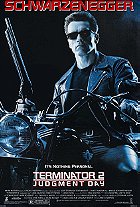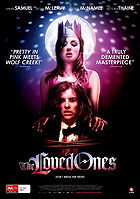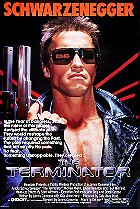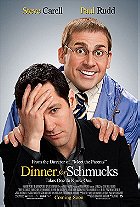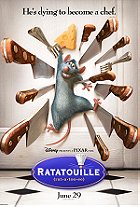The Orphanage (a.k.a. El Orfanato) possesses a similar look and feel to other thrillers which originated from Latin American and Spain during the noughties, most noticeably Guillermo del Toro's The Devil's Backbone and Alejandro Amenabar's The Others. Going above and beyond the cheap, empty-headed trappings which plague mainstream supernatural horror films (such as 2007's The Messengers), The Orphanage is first and foremost a weighty, existential and shocking study of the frailty of life and the mysteries of death. Guillermo del Toro also served as a producer on this film, so it's therefore no surprise that it has been imbued with the same love of storytelling which makes del Toro's work so brilliant. See, unlike Hollywood's endless recycling of mindless slashers and remakes of Asian pictures, The Orphanage has an honest-to-goodness narrative. There is an art to spinning an effective scary yarn, and the makers of The Orphanage nailed this requirement.

The story begins with a scene set at an orphanage where a group of young children are playing a game. Little do the kids realise that the time has come for one of them, Laura, to leave and start life with a new family. Fast-forward thirty years or so, and Laura (Rueda) is a grown women with a husband named Carlos (Cayo) and an adopted son named Simón (Príncep). The story starts proper when Laura and her family move into the abandoned orphanage where she used to live. Their goal is to open a spacious, loving home for children with special needs; something near and dear to their hearts since they themselves are struggling to come to terms with Simón's own illness (he's HIV-positive). Soon, Simón starts making imaginary friends. However, when Simón suddenly disappears without a trace and Laura starts hearing mysterious noises within the house, Laura begins to consider that Simón's imaginary friends might not have been a figment of his imagination after all.
While the pacing is at times a tad clumsy, the resolution to the film is close to perfection - it represents a winning combination of hope and tragedy. The overall narrative is dense, and writer Sergio G. Sánchez managed to weave together a number of plot threads which combine at the end. With that said, though, the final scene is entirely unnecessary - the film should have ended on a bittersweet note and allowed room open for interpretation. Instead, the final scene leaves no room for debate and pushes the film into the realm of sweetness. Additionally, The Orphanage is at times distanced and vapid when it's clearly screaming to lunge out at the viewer. These moments are conceptually sound, but are lost in a picture in need of more concentration. This is perhaps a reflection of first-time director Juan Antonio Bayona's inexperience with feature films. On a more positive note, though, the film was hauntingly shot by cinematographer Óscar Faura.

As a ghost story, The Orphanage is similar in terms of plot to such films as Dark Water and Silent Hill. The difference, however, is the execution - The Orphanage is a more classical, tense thriller which instils a sense of asphyxiating apprehension. The picture is usually more unsettling than genuinely frightening, and gore is minimal. The scares are often of the nature of strange noises behind walls, odd apparitions appearing in the distance, and shocking images. It may seem accurate to label The Orphanage as a horror film, but it's almost unfair - there's almost nothing to connect it to the popular, "in-your-face" horror films which dominate the genre. There are no dazzling pyrotechnics or instances of impressive CGI on display here either since the movie relies on escalating tension, mystery, and the possibility of supernatural forces. Plus, the frights exist in the service of the story, not the other way around. The Orphanage is definitely a horror film that Alfred Hitchcock would've been proud of.
The Orphanage admittedly exercises more than a few horror film conventions, including parental separation from their kids, physical manifestations of emotional traumas, and otherworldly spirits. Fortunately, the story never seems to be rehashing the same old tired details in a stale fashion, even if they sometimes serve the immediate purpose of a scare or a shocking sequence. With that said, though, the hackneyed ideas usually seem fresh because they were wonderfully re-imagined by director Bayona - even the customary "don't go into the basement/dark place" moments are rendered compelling because they were treated with commendable sincerity and style. Part of the reason for this success is Sánchez's expert writing. Sánchez provided real motivation and clear logic for the actions of the characters, and the few jumps in the movie feel well-earned rather than purely exploitative.

The acting anchor of the film is Spanish television actress Belén Rueda, who received her first international exposure here. As Laura, she is amazing; fearlessly committing to the performance (she reportedly shed 10 pounds during filming) and carrying the entire film on her tense shoulders. She's mesmerising in virtually every scene; never playing the emotions too broadly, and drawing us in so we can see things from her perspective. All the American starlets who have sleepwalked through recent thrillers should hang their heads in shame. Alongside her, as Simón, young Roger Príncep is remarkable. Neither cloying nor artificially bratty, he is a believable child, and, when he exits the film, a viewer will feel Laura's loss and actively yearn to uncover what has happened to him. Also memorable is Geraldine Chaplin (daughter of Charlie Chaplin) who steals her screen-time in the role of a colourful medium called upon to investigate the supernatural presence which Laura insists is in her home. Rounding out the main players is Fernando Cayo as Laura's husband Carlos. Cayo's performance is natural and believable.
The Orphanage earned several nominations and awards at festivals, and a great deal of notoriety precedes it. While it's not quite as superlative as all of this might suggest, it's a solid horror movie. For those who enjoy good ghost stories and are willing to be patient with a film that gradually unveils its secrets rather than uncovering them in an orgy of gore, 2007's The Orphanage fills a need. Predictably, talks began soon after its release of an English-language remake; the kind of pillaging that should be outlawed by now. Do not wait for the version without subtitles, as this is the real deal, and boy is it a humdinger.
8.1/10
 Login
Login
 Home
Home 183 Lists
183 Lists 1670 Reviews
1670 Reviews Collections
Collections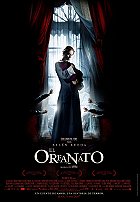
 0 comments,
0 comments, 